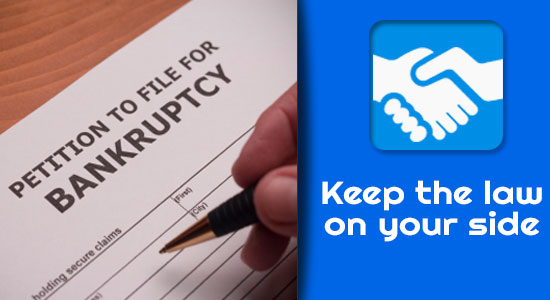What are the basic documents required in a basic bankruptcy case? Frankly speaking, bankruptcy doesn’t come so easy for a layman like you. The entire bankruptcyprocess and the way to finding it out about the documents needed to file, shouldn’t stress you any further amidst your already grim financial situation.
To begin with, there are some documents that help lay out a complete picture of your current financial health. Therefore, here’s a synopsis of what you may require to file in bankruptcy and get discharged from your debts.
Essential financial documents
- Tax returns - A copy of your previous years' tax returns is of course needed, particularly that of the last two years or so. In case, you haven’t filed them, regardless of the reasons, then you’ll very likely have to report that to the bankruptcy court and also provide valid reasons for not filing the same. It may happen that you’ll be required to file in for those back taxes first, before your current bankruptcy case can move proceed.
- Assets - If you own assets like real properties, vehicles, or any other significant assets that can be considered as one of the contributing factors to your bankruptcy, then it is very much important for you to have all the necessary documents to prove your ownership over them. Take for instance, copies of your property’s valuation, vehicle registration, and so on.
- Valid identification - At the time of appearing for your bankruptcy hearing, and during any other general purpose, you must have a valid photo identification proof to establish in the court that you are what you claim to be, actually. In this regard, documents that may come in handy are your birth certificate, driver’s license or your social security number.
- Bank accounts - If you own banks accounts like savings, checking or have life insurance policies, etc in your name, then a statement describing each such account will likely be asked by the court. It is important to note here that anything that will provide a better understanding of your financial health during the bankruptcy proceedings must be revealed clearly and honestly.
- Pay stubs - If you’re a working professional, then you’ll be asked to submit a copy of all your pay stubs as your income proof. This is generally required for the last six months prior to filing of your bankruptcy petition. In case, you aren’t working, then also you should have all the necessary proof of your most-recent source of income ready with you.
- Exceptions - The Bankruptcy Code honors any sort of special circumstances for which you’re suffering and because of which you were forced to file for bankruptcy protection such as child support or alimony, or may be some other causes for your financial crisis. You need to gather those documents as well and keep them ready.
Fortunately, documents required to file bankruptcy are almost the same, irrespective of the fact that you’ve chosen to file for Chapter 7 or Chapter 13 bankruptcy protection. Once you’re ready with these primary documents, then you’ll have to catch yourself up with the five most elementary categories of forms that are must be submitted in the bankruptcy court.
Basic forms for bankruptcy
- Petition - The most important document you’ll have to submit to the bankruptcy court will be your diligently filled-in bankruptcy petition form. In this case, you’ll have to mention the type of bankruptcy you want to file - Chapter 7 or Chapter 13 for individuals and Chapter 11 for business owners, along with the details of all your assets owned as well as liabilities.
- Schedules - You will also have to provide with a set of schedules that would lend a statistical summary of all your financial liabilities as well as respective financial information. There are as many as 11 schedules that run from A through J, covering various asset areas.
- Local forms - Apart from the above two forms (documents), you’ll also have to provide few more. These additional local forms will be required on the basis of your bankruptcy case. Some of them are forms entailing property exemption, property redemption, claim objections, and specific local procedural needs.
- Exhibits - You may have to submit around four exhibits with your bankruptcy petition form. These exhibits might include:
Exhibit A, required when filing for Chapter 11 bankruptcy
Exhibit B, required if your petition is being prepared by an attorney
Exhibit C, required when you own or have property that is considered a risk for the public health/safety.
Exhibit D, required in order to show the court that you’ve successfully completed the mandatory pre-bankruptcy credit counseling course. - Perjury form - This is also one of the crucial documents in any bankruptcy case. Here, you’ll have to sign the document to declare that all your above mentioned information are true, accurate and full, and confirms to the best of your knowledge. Misrepresenting or manipulating your financial state of affairs, your total debt liabilities, or assets owned by you will amount to federal crime. Due to any such indictment, your bankruptcy petition may even get rejected by the court and that you may even have to face a ban from filing any further bankruptcy application for quite a long period of time. Eventually, this might bring in a whole lot of adverse legal consequences for you.
Hence, to streamline the process of filing for bankruptcy protection, you may look to buy a bankruptcy forms package from the law firms, selling them. However, if you find your case to be pretty complicated, then it is advisable that you work with an experienced, local bankruptcy attorney to represent you well in the court and fight the case on your behalf effectively.









